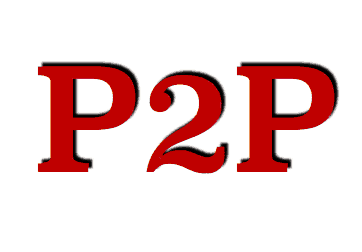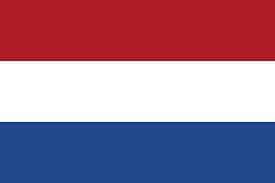 As reported last week in Crowdfund Insider, The University of Cambridge has teamed up with EY, the global professional services organization, and launched the European Alternative Finance Benchmarking Survey with the support of major European industry associations. This is the largest study to date on crowdfunding, peer-to-peer lending and other forms of alternative finance in Europe. This benchmarking survey, which opened on 25 November and closes on 20 December, aims to capture the size, transactional volume and growth of the alternative finance markets across Europe.
As reported last week in Crowdfund Insider, The University of Cambridge has teamed up with EY, the global professional services organization, and launched the European Alternative Finance Benchmarking Survey with the support of major European industry associations. This is the largest study to date on crowdfunding, peer-to-peer lending and other forms of alternative finance in Europe. This benchmarking survey, which opened on 25 November and closes on 20 December, aims to capture the size, transactional volume and growth of the alternative finance markets across Europe.
Major national and regional crowdfunding associations in France, Germany, Spain, Italy, the Netherlands, the Nordic countries and the UK are all participating in this groundbreaking research. This benchmarking survey is supported by FPF, ANACOFI and AFIP (France), the German Crowdfunding Network, the Spanish Crowdfunding Association, Crowdfunding Hub (Dutch), AISCRIS (Italy), the Nordic Crowdfunding Alliance, the UK Crowdfunding Association, the P2P Finance Association, the European Crowdfunding Network, the European Equity Crowdfunding Association as well as the P2P Banking.com.
CrowdfundingHub Founder Ronald Kleverlaan, crowdfunding strategist, international key-note speaker and 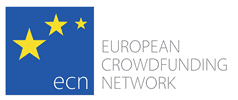 crowdfunding and crowd financing advocate, initiates Crowdfund Insider‘s exclusive Cambridge-EY European Alternative Finance Benchmarking Research series.
crowdfunding and crowd financing advocate, initiates Crowdfund Insider‘s exclusive Cambridge-EY European Alternative Finance Benchmarking Research series.
As expert advisor on crowdfinancing for the European Commission, advisory board member of several crowdfunding initiatives, Vice-Chairman of the European Crowdfunding Network, Founder of CrowdfundingHub and strategic consultant on civic- and SME-crowdfunding, Kleverlaan not only understands European crowdfunding trends, he helps to ignite them.
Readers may have watched Kleverlaan discuss crowdfunding in a TED talk or connected with Kleverlaan at one of several international conferences, workshops or university classes he has taught internationally in locations including Amsterdam, Berlin, Brussels, Solo (Indonesia), Izmir (Turkey), Orlando (US) and Cartagena de Indias (Columbia) and in Paris at the Sorbonne University.
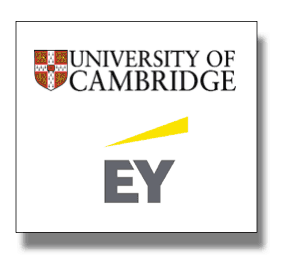 I had the pleasure of corresponding with Kleverlaan via email during which he discusses the Cambridge-EY European Alternative Finance Benchmarking Research. Our interview follows:
I had the pleasure of corresponding with Kleverlaan via email during which he discusses the Cambridge-EY European Alternative Finance Benchmarking Research. Our interview follows:
Erin: Why has CrowdfundingHub decided to participate in the Cambridge-EY European Alternative Finance Benchmarking Research?
Ronald: The core mission of the CrowdfundingHub is to create a sustainable ecosystem for alternative finance. We do this as an independent knowledge centre with research activities, by educating the different stakeholders with public events and by bringing together the different stakeholders in Roundtable sessions. The reason we joined this research is that it is very important for policy makers and regulators to have a clear understanding of the current size and growth in this fast developing market. Because the alternative finance market in the Netherlands developed early and we have a lot of different types of platforms compared to other European countries, we have a lot of experiences to share with other countries. It is also interesting for Dutch platforms to benchmark their own status with their European competitors.
Erin: The rapid growth of the various sectors indicate that peer to peer lending is clearly leading the charge – yet equity crowdfunding is rather small but growing rapidly. How do you explain this phenomenon? Will P2P lending continue to lead the charge in the Netherlands? Why or why not?
Ronald: P2P lending will indeed be the main type of alternative finance for Dutch companies in the coming
years. Dutch companies, but also investors are used to debt-based financing, just like entrepreneurs and investors in most of mainland Europe. Equity crowdfunding is associated with high-risk startup investments and is mostly used for that. Traditional SMEs are looking for an alternative for their bank loans and the easiest option is P2P lending. Investors are looking for a steady return on their investments, and the interest rate will depend on the potential risks.
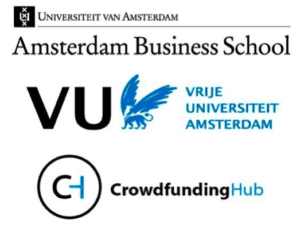 Erin: What can the United States learn from the Netherlands and the initiative of the Vrije Universiteit (VU), Amsterdam Business School (UvA) and the CrowdfundingHub?
Erin: What can the United States learn from the Netherlands and the initiative of the Vrije Universiteit (VU), Amsterdam Business School (UvA) and the CrowdfundingHub?
Ronald: The Amsterdam Universities and the CrowdfundingHub work closely together on crowdfunding research. Over 50 students, PhD researchers and academics are focussing on different areas of crowdfunding and sharing their concepts and results. The academic research seminar organised by these three organisations was a great success and showed the multi-faceted research area of crowdfunding. A follow up event is planned in Q1 of 2015. These type of events are very important for this developing industry. At this moment we should share as much of our experience and knowledge as possible to make sure this industry will develop faster and become more professional.
Erin: How has the Dutch Government approach, both elected and regulatory, acted as a catalyst to propel crowdfunding & P2P in the Netherlands? How are regulations evolving?
Ronald: From the start the Dutch government and regulators were very positive about crowdfunding. The regulator was flexible about new initiatives. This ensured a very innovative and creative ecosystem with crowdfunding platform for many different niches and creative business models being tested. One of the first crowdfunding platforms, Sellaband, was launched in The Netherlands, as well as the first equity
crowdfunding platform, Symbid. After that, a number of other innovative platforms offering revenue sharing or convertible notes were launched. At this moment almost 100 crowdfunding platforms are live in the Netherlands. In the last months the regulators are doing an in-depth research of the market and are talking with all the stakeholders to identify potential changes they can or should do. The Dutch government is also promoting the Crowdfunding industry. The Ministry of Economic affairs financed a large public promotional campaign on crowdfunding together with the chamber of commerce and the main Crowd Investing platforms.
Erin: In its findings regarding the role of women in alternative finance, the recent Nesta-Cambridge report states that women make up the majority of fundraisers in both donations based and rewards based crowdfunding. How will women move to match the predominantly male P2P and equity crowdfunding sector? What about other under-served segments of the population?
Ronald: Interesting question. Women are very good in community building and social connections. There are two types of Crowdfunding/P2P lending campaigns for businesses. Either they focus on using crowdfunding as a marketing tool and use it to create a strong network of fans (and raise some money during that process), or they use crowdfunding mostly for raising the funding from anonymous investors looking for a good return. The second option is mostly referred as p2p-lending and the first option as crowdfunding. For the crowdfunding-campaigns the fundraising skills of women are very useful and they have much better results there. As for the P2P-lending campaigns, at this moment we see that mostly men are using them, because they mostly focus on only receiving the money.
Erin: In order for alternative finance to grow, the Nesta-Cambridge report explicitly notes “the industry needs to continue innovating, educating users and addressing the various concerns consumers and SMEs have about alternative finance.” What will be done to engender such growth?
Ronald: This is indeed very important and the main reason we launched the CrowdfundingHub. It is very important to have an independent organisation not only educating entrepreneurs and investors, but also to do independent research and share these experiences with the rest of the stakeholders. There will be defaults, just as this will happen when businesses get funding from traditional sources, but most likely they will be far less then with traditional finance because more investors have a (personal) connection with the company and will help them to succeed. It is therefore very important that organisations like the CrowdfundingHub, but also the European Crowdfunding Network and the national associations, are available to answer questions when something goes wrong and put it in perspective. These organizations should also make sure they promote success stories to educate other entrepreneurs and the general public about the potential and opportunities.
Erin: Who do you identify as the trailblazing this path?
Ronald: The UK government is doing a great job by stimulating and promoting the alternative finance industry. The UK government promoted crowdfunding actively; the Dutch government is also doing that now. But the most important action of the UK government was to lend 200 million pound through the P2P/CF platforms through the British Business Bank. This gave a boost to the industry.
Erin: How do you see crowdfunding evolving across Europe?
Ronald: We are just at the beginning of the growth of crowdfunding and alternative finance in Europe. First
there will be a bigger increase of new platforms, but this will quickly be followed by a consolidation of platforms focusing on P2P lending and equity crowdfunding. One of the first examples is the acquisition of the Dutch platform Geldvoorelkaar.nl by Trustbuddy. This will continue when the industry will become more mature. When the P2P platforms expand, they will move closer to traditional banks, but they will be much more efficient and cheaper. Most of the financing for personal and business loans will in the future come from these online platforms. Another mayor development will be the start of new crowdfunding platforms by large NGOs and local governments. Because they want to control the branding and access to the contact details of the investors, they will launch and develop their own platforms or partner with some of the existing platforms.
Crowdfund Insider has joined with The University of Cambridge to be the exclusive media partner on this benchmarking research. This interview is the first in a several week long series that will include multiple, in-depth interviews with international thought leaders and crowdfunding industry pioneers from the collaborating associations.
Please find the link to the benchmarking survey below:
https://www.surveymonkey.com/s/cambridge-ey-europeanaltfinbenchmarkingsurvey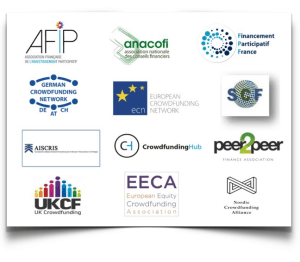
For benchmarking research enquiries please contact Bryan Zhang, PhD Researcher in Crowdfunding & Alternative Finance at The University of Cambridge via email zz251@cam.ac.uk or twitter @BryanZhangZ or Robert Wardrop, Research Fellow at the Judge Business School, at The University of Cambridge at rhw40@cam.ac.uk


